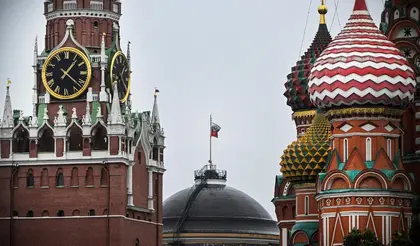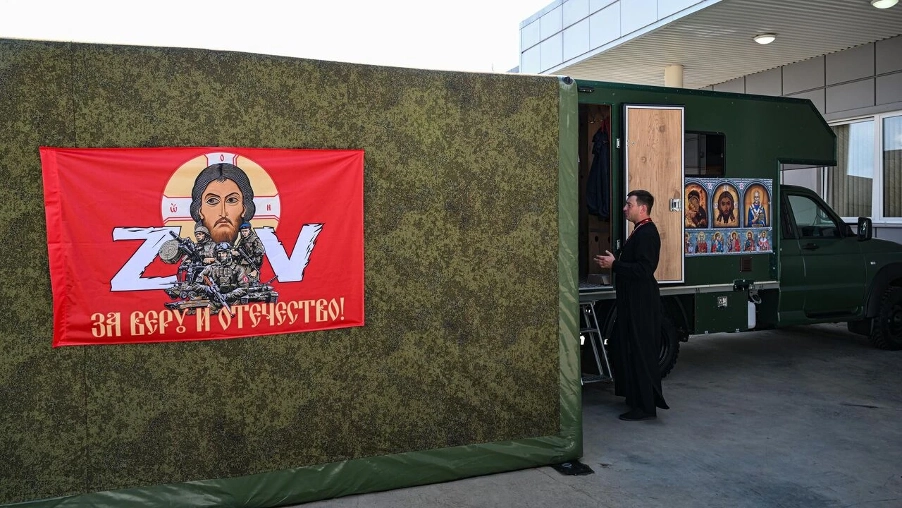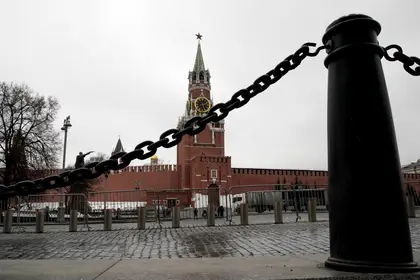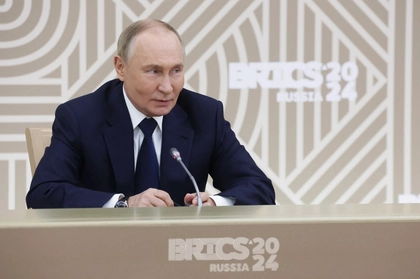Analysis of internet searches conducted by people in Russia suggests their real views on the war in Ukraine differ significantly from what the Kremlin would like the world to believe, new research reveals.
What opinion polls tell us
JOIN US ON TELEGRAM
Follow our coverage of the war on the @Kyivpost_official.
According to both the Voice of America and Euronews websites, recent surveys of the Russian public conducted by their government show two obvious trends in relation to the war in Ukraine, which seem to be counter-intuitive.
These polls found that while as many as 80 percent expressed concern about the financial and social effects of Western sanctions, imposed after Russia’s full-scale invasion of Ukraine, they did not blame the Kremlin. At the same time, even after 18 months of war, as many as two thirds still support the “special military operation.”
More surprisingly, however, is that in on-line, anonymous survey conducted by the Open Minds Institute (OMI) into values and social beliefs, found that some 55 percent of respondents remained in favor of the war continuing.
OMI caveated this by pointing out that almost a fifth of those responding declined to answer questions about their attitudes to the war and replies varied among different groups depending on age, social status, education, political affiliation and so on.
One participant who declined to answer questions about the war said, “Thank you for the opportunity not to testify against myself.”
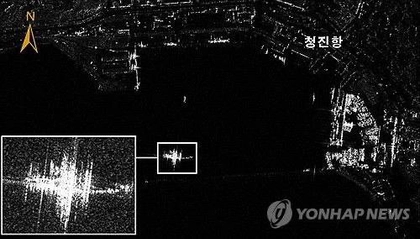
Up to 12,000 North Korean Troops Transferred to Russia, Satellite Images Show
What the internet tells us
The independent Russian news site The Insider offers a different take on public attitudes. The outlet said in a June article that public opinion polls weren’t worth the paper they’re written on because most Russians are reluctant to speak openly.
Two articles published by The Insider, in August and at the beginning of October, says an analysis of which subjects are searched for on the internet are a better indicator of the public’s true opinion, the articles’ author, Dada Lyndell, said.
Lyndell is a fellow of the International Center for Journalists (ICFJ) and is an award-winning Russian data specialist who specializes in the “mining” of open-source intelligence (OSINT) both as an investigator and trainer. She works to expose issues around corruption, health, economics, fraud, questionable government activity and more.
In the articles she examines six areas that are often searched for on both the Google and Yandex search engines, which she contends gives a better indication of what areas concern Russians and gives a truer picture of their attitude to the war. Her investigations are amply illustrated with statistics and represented graphically.
What are the six areas?
When will the war end and who will win?
Lyndell first comments that most Russians prefer the search term “war in Ukraine” rather than the Kremlin’s “special military operation” or “SVO.”
Questions about when the war will end began virtually from day one with surges coinciding with notable events such as mentions of mobilization, the January Russian offensive, the incursions into Belgorod by “free Russians.”
She also noted an increase in the numbers that look up “who is losing” as opposed to “who is winning.”
As the war drags on there are more searches on the prospects of a “peace agreement” or “negotiations.”
Predictions of fortune tellers
As they worry about their future, combined with a growing mistrust of official forecasts, many Russians are turning to on-line fortune-tellers, wizards, seers, and all sorts of charlatans for predictions; a tendency that has only grown since the start of the war.
Even the propagandist TV programs, such as those on Rossiya1, have got in on the act with live broadcasts of fortune tellers “staring into their crystal balls, seeing Ukraine crushed and Russia triumphant, defeating all of its global enemies.”
Shows featuring psychics and astrologers have become some of the highest-rated in Russia.
It seems that even the Russian army is following the “supernatural” trend. Volunteers are sending “enchanted” kits containing prayers, consecrated crosses, and paper icons of “St. George the Victorious” to protect troops on the front line and the numbers of priests and shamans deploying to the battlefield are increasing, some equipped with mobile churches.
A mobile pop-up Orthodox church prepares for deployment to Ukraine. Photo: mobilization news
Drones
The appearance of Ukrainian drones over Russian territory sparked a flood of questions on the web, particularly from those in Moscow, the regions that border Ukraine including Bryansk, Belgorod, Kursk and occupied Crimea that peaked with the August raids on Russia’s capital.
Lyndell says this has forced even apolitical Russians to take an interest in what’s going on, quoting Lithuanian political scientist Mindaugas Lapinskas who says: “Drones have become an effective way to draw attention to the war as a significant share of the population takes an interest in events only when directly affected.”
Who attacked whom?
Immediately after the full-scale invasion the most popular searches in Russia illustrated how confused most people were about the causes with a roughly 50-50 split between those who asked “Why did they attack?” or “Why did we attack?”
Increasingly, as Russian propagandists raised the issues of Ukraine's accession to NATO and its members supplying weapons to Kyiv, searches began to focus on why Russia was at war with NATO or why the alliance was preparing to attack.
Lapinskas believes many of these queries were from those seeking to validate their pre-existing prejudices rather than be looking for actual answers.
Army assistance and volunteer enlistment
Lyndell says that searches about helping the Russian military are low as a percentage of the totals. Activity on sites such as VKontakte (Russia’s equivalent to Facebook) has largely switched from information on providing aid to refugees from the Donbas during the early weeks of the war to appeals to provide equipment such as drones to the military.
On platforms such as Yandex there is much less interest in how to enlist, which peaked during last year’s mobilization drive, compared with more from those wishing to donate funds or help with logistics.
In 2023 searches around “how to become a volunteer” focus more on benefits and payments particularly in Russia’s eastern regions such as Tyva, Buryatia, Arkhangelsk, and Zabaykalsky.
Potential volunteers have worked out that if they volunteer, they will get better pay and a fixed term contract whereas mobilization can be open-ended.
Where did Putin go?
While the most common searches relate to the “normal” activities of the Russian president or general biographical information or his latest statements as with other queries there are surges during notable events in the war.
The main question is “Where is Putin?” which puzzles and worries Russians when he “disappears” as he seemed to do when war broke out, when Ukraine’s counteroffensive started, when mobilization began, at the height of the Battle of Bakhmut, at the start of drone attacks on Moscow and during the Prigozhin “mutiny.”
Along with the question “Why does Putin need Ukraine?” more and more Russians are speculating on-line about when Putin will leave office and how long he’d been in power.
Lyndell concludes that analysis of these internet trends suggests the official Russian justification for the war in Ukraine no longer fully resonates with many contrary to what the propagandists and the various survey and polls suggest.
You can also highlight the text and press Ctrl + Enter


